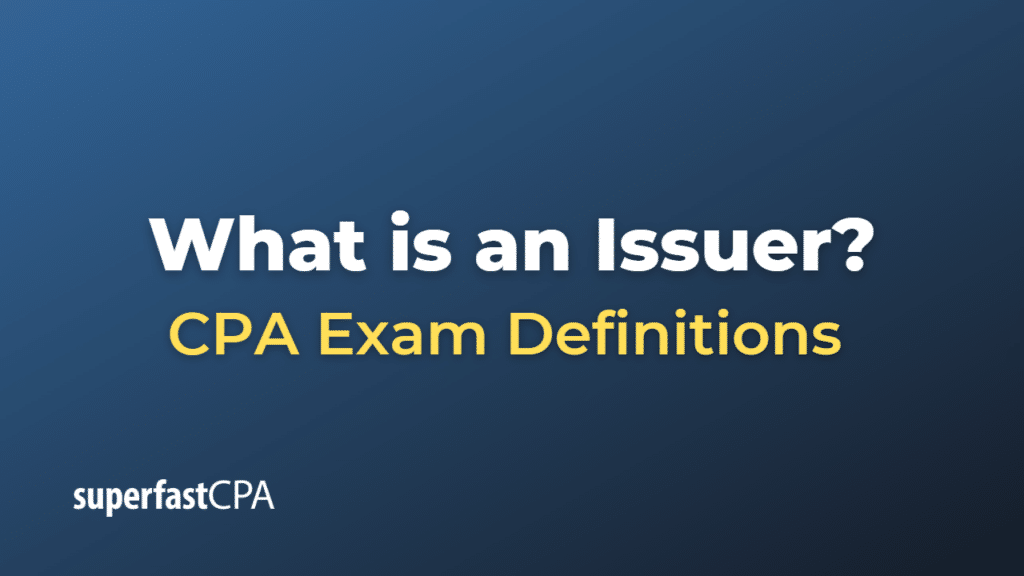Issuer
An issuer is a legal entity that develops, registers and sells securities for the purpose of financing its operations. Issuers may be domestic or foreign governments, corporations, or investment trusts. The securities can vary and may include stocks, bonds, notes, currency, derivative contracts like options, and more.
When a company decides to raise funds by selling securities to investors, the company becomes an issuer of those securities. Issuers are legally responsible for the securities they issue and must provide accurate and complete information in their registration statements and prospectus for the benefit of potential investors.
Issuers are regulated by securities laws and agencies, such as the U.S. Securities and Exchange Commission (SEC), which help to protect investors by enforcing rules about the disclosure of information and the selling practices related to the securities issued. The goal is to ensure that potential investors have enough reliable information to make informed decisions about whether to buy the securities.
It’s also worth mentioning that in the context of credit cards, the term “issuer” refers to the bank or financial institution that provides the credit card to consumers. These credit card issuers also take on the risk associated with granting credit to consumers and have the responsibility of billing for repayments.
Example of an Issuer
Let’s consider a couple of examples:
- Securities Issuer: Apple Inc., the multinational technology company, is an example of an issuer. When Apple decides to issue additional shares of its common stock to raise capital for its business operations, it becomes the issuer of those securities. Apple has the responsibility to ensure all relevant information is available to potential investors and must follow the regulations set by the Securities and Exchange Commission (SEC).
- Bond Issuer: The U.S. government is an issuer when it sells Treasury bonds to fund its operations. When you buy a U.S. Treasury bond, the government is the issuer of that bond.
- Credit Card Issuer: An example of an issuer in the context of credit cards would be JPMorgan Chase & Co., one of the largest banking institutions in the U.S. When Chase offers a credit card, like the Chase Sapphire Reserve, to a consumer, Chase is the issuer of that credit card.
In each of these cases, the issuer is the entity that creates and offers the security or financial product (such as a stock, bond, or credit card) for purchase or use by investors or consumers.













